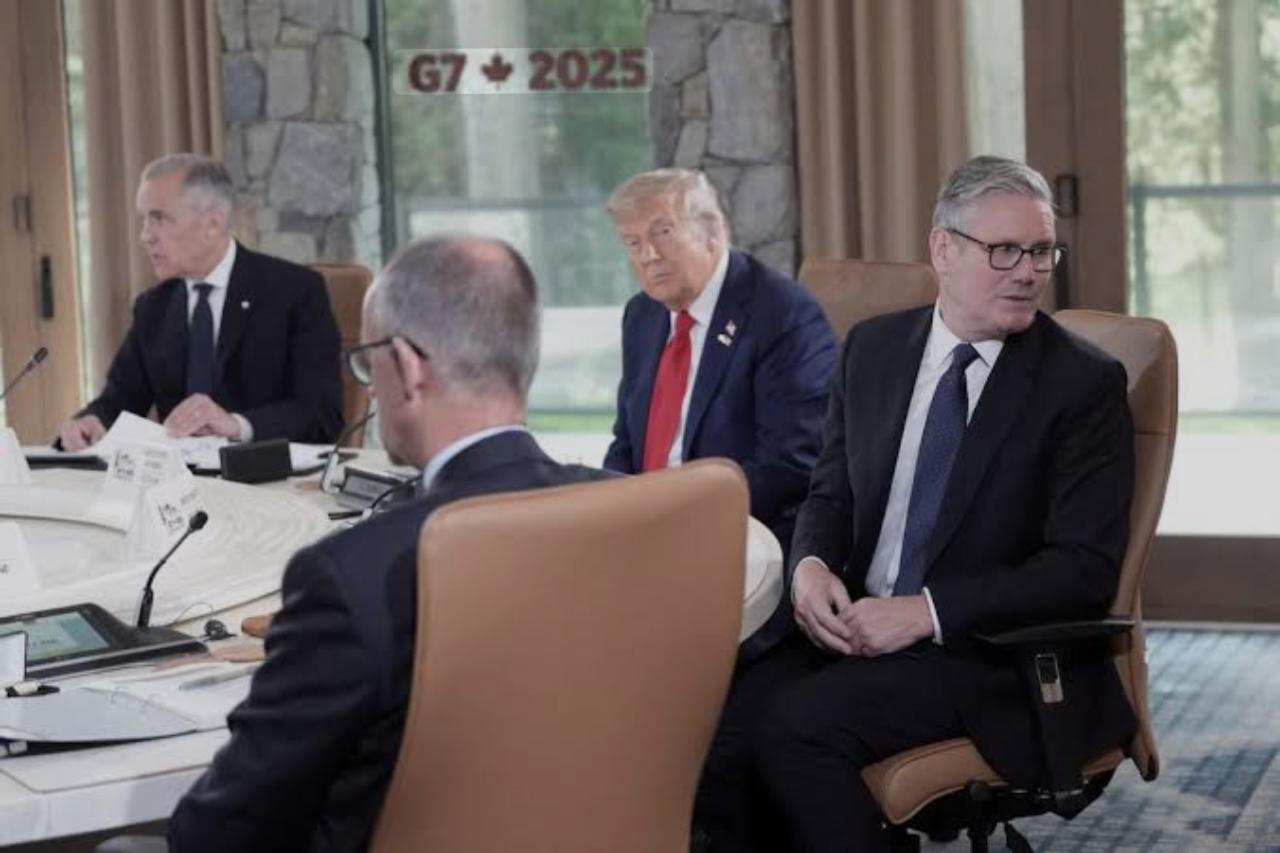Trade Tensions Take Center Stage
As the Group of Seven (G7) summit continues in Canada, global leaders are pressuring U.S. President Donald Trump to ease his aggressive trade stance. Many warn his policies could destabilize the global economy. With rising tariffs and Middle East tensions, the summit has become a platform for urgent diplomacy.
The G7—comprising Canada, France, Germany, Italy, Japan, the United Kingdom, and the United States—is dealing with the fallout of Trump’s growing trade war. Most member countries already face a 10% baseline tariff from the U.S. More levies on steel, aluminum, and automobiles are under consideration.
Ahead of the summit, Trump said trade would be the meeting’s “primary focus.” Canadian Prime Minister Mark Carney, the host, is expected to raise concerns, especially after new U.S. tariffs on Canadian goods.
Mexican President Claudia Sheinbaum, attending as a guest, will also meet with Trump. Mexico continues its negotiations with the U.S. and Canada over a revised North American Free Trade Agreement (NAFTA).
Although a breakthrough is unlikely, high-level talks will continue. U.S. Trade Representative Jamieson Greer and Treasury Secretary Scott Bessent are attending. Bessent recently suggested the U.S. might delay planned “reciprocal” tariffs for countries showing goodwill during discussions.
Europe Pushes Back Against U.S. Tariffs
German Chancellor Friedrich Merz said he is working with French President Emmanuel Macron and Italian Prime Minister Giorgia Meloni to oppose the U.S. measures.
“We are firmly resolved to engage the U.S. government over the next two days,” Merz stated. “There won’t be a final resolution at this summit, but we may take small but meaningful steps forward.”
European Commission President Ursula von der Leyen echoed that position. She called for trade policies to remain “fair, predictable and open.” EU trade negotiator Maros Sefcovic is also attending the summit.
British Prime Minister Keir Starmer, who recently signed a preliminary trade deal with Washington, noted that final negotiations are underway. The agreement lets the UK avoid further U.S. tariffs, though the 10% base tariff still applies.
Geopolitical Tensions: Iran and Israel Cast a Shadow
While trade dominates official talks, the escalating Iran-Israel conflict is also a key concern. On Monday, an Israeli airstrike hit an Iranian state TV station during a live broadcast, raising international alarm.
Efforts to issue a G7 joint statement urging de-escalation have stalled. Political differences within the group have prevented consensus. Trump has reportedly resisted any formal call for restraint, while European nations continue to press for peace.
“Japan stood out with a particularly strong condemnation of Israel’s airstrike,” reported Al Jazeera correspondent James Bay. This highlighted the divisions within the G7 bloc over the Middle East crisis.
Conclusion: Can the G7 Find Common Ground?
The 2025 G7 summit has revealed deep divides on both trade and foreign policy. Sharp disagreements remain over U.S. tariffs and the handling of escalating tensions in the Middle East.
As leaders continue closed-door negotiations, the path to consensus remains unclear. The outcome may hinge on how far President Trump is willing to compromise. His decisions could determine whether the G7 can preserve global economic cooperation and help reduce regional conflict..






